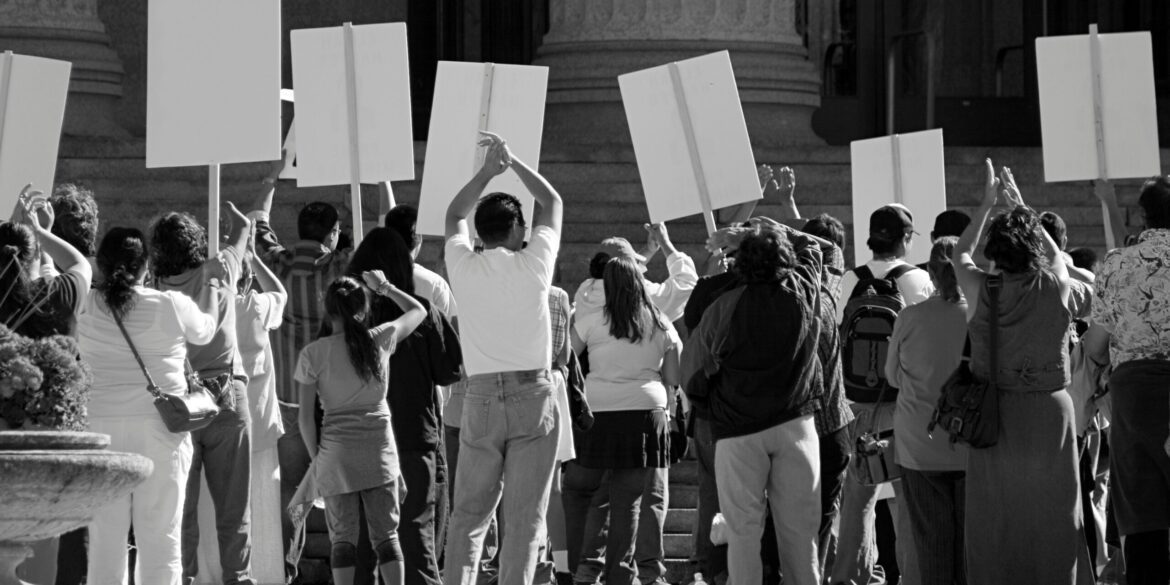Eric Langford, Senior Correspondent
Date: June 10, 2025
Protests Break Out Across the U.S. Amid ICE Raids, Military Deployment
Nationwide protests erupted on June 10, 2025, following intensified Immigration and Customs Enforcement (ICE) raids targeting undocumented immigrants. The raids, conducted in major cities across the country, have ignited widespread demonstrations. With President Donald Trump deploying military troops to assist in the raids, tensions have escalated, drawing harsh criticism from state leaders and civil rights organizations.
In Los Angeles, Mayor Karen Bass declared a local emergency and imposed a nighttime curfew in downtown to control the unrest. The curfew was enforced in a one-square-mile area, where the protests have escalated to include incidents of vandalism and arrests. The demonstrations have spread rapidly across the U.S., with protests popping up in cities such as New York, Chicago, and Seattle.
Trump’s Military Deployment Fuels Controversy
President Trump’s decision to send military personnel to assist in ICE operations has sparked intense backlash, with many seeing it as an overreach of presidential power. Critics argue that the use of military forces to assist in domestic law enforcement goes against the principles of democracy and the restrictions placed by the Posse Comitatus Act, which limits military involvement in civilian law enforcement.
California Governor Gavin Newsom was quick to condemn the deployment, calling it a politically motivated move aimed at creating division ahead of the 2026 elections. Newsom characterized the president’s actions as “authoritarian” and accused him of using the military for political theater. He added, “This is a dangerous escalation that will have lasting consequences for our state and our nation.”
Protests Spread Nationwide
Protests against the ICE raids have taken hold in cities across the country. In New York City, protesters gathered near ICE facilities, chanting slogans and waving signs condemning the raids and the use of military troops on U.S. soil. The protests were largely peaceful but tense, with some demonstrators clashing with police.
In Chicago, crowds gathered outside federal buildings, while smaller protests were organized in Seattle. Despite the peaceful intentions of many, some rallies have turned violent, resulting in damage to businesses and the arrest of several protesters for looting and vandalism.
Los Angeles has seen the most intense unrest. The curfew in downtown aims to prevent further chaos, but tensions continue to grow. While the mayor’s actions were intended to restore order, many see it as an infringement on citizens’ right to protest peacefully. Protesters in the city have vowed to continue their demonstrations until the raids and military deployment are halted.
Legal Challenge Against Military Deployment
In the latest development, a federal judge has ruled against California’s request for an immediate restraining order on the military deployment. Instead, the judge scheduled a hearing for later this week to review the state’s legal challenge. California’s legal team argues that the use of military personnel in law enforcement is unlawful under the Posse Comitatus Act, which restricts the military’s role in domestic law enforcement unless explicitly authorized by Congress.
California officials have vowed to continue the legal battle, citing concerns that military involvement in law enforcement will set a dangerous precedent and further erode civil liberties.
Civil Rights Groups Demand Action
Civil rights organizations are rallying behind the protests, calling for an end to the raids and the militarization of immigration enforcement. The American Civil Liberties Union (ACLU) issued a statement condemning the Trump administration’s tactics as unconstitutional and a violation of immigrant rights. The ACLU has pledged to provide legal assistance to those impacted by the raids.
The National Immigration Law Center (NILC) has also voiced its opposition, urging Americans to stand in solidarity with immigrant communities. “We will not allow our nation’s values of justice and fairness to be trampled on by these dangerous actions,” said NILC spokesperson Maria Garcia. The organization is calling for a nationwide boycott of businesses that support ICE raids and the militarization of immigration enforcement.
Political Ramifications and 2026 Election
The ongoing protests are beginning to have significant political ramifications as the 2026 election cycle approaches. Many Americans, particularly in swing states, are concerned about the Trump administration’s hardline stance on immigration. Polling shows that while some Americans support a tougher immigration policy, others are uneasy about the militarization of the issue and the treatment of immigrant communities.
For President Trump, the situation is a delicate balancing act. While his base remains loyal, particularly on the issue of immigration, the widespread protests and the involvement of the military may alienate moderate voters, potentially jeopardizing his standing in key battleground states.
A Nation Divided Over Immigration
As protests continue to grow across the country, it’s clear that immigration remains one of the most polarizing issues in America today. The clashes between protesters and law enforcement, the use of military troops, and the legal battles unfolding in California all point to a nation deeply divided over how to address immigration.
While the debate rages on, the country faces a pivotal moment in its history, with significant consequences for both domestic policies and the future of American democracy. Whether the protests will lead to a shift in policy remains to be seen, but one thing is certain: the issue of immigration, and how the U.S. handles it, will continue to dominate the national conversation in the months to come.

